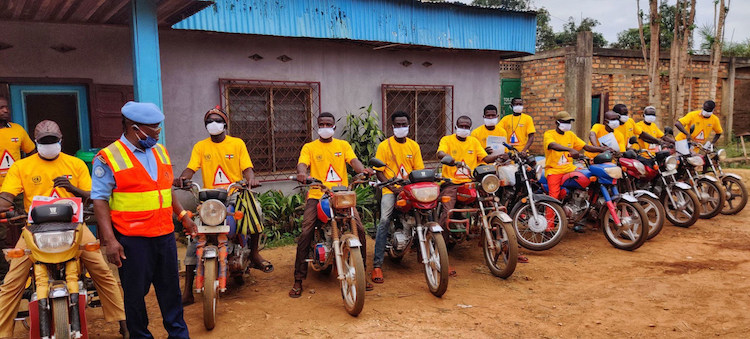
By Jamshed Baruah
GENEVA (IDN) – At present, Africa has an only small fraction of more than 7.5 million COVID-19 affected people, nearly 423,000 of whom have died because of the Coronavirus worldwide. The virus has affected about 200,000 people on the 54-nation continent and killed 5,600.
“Swift and early action by African countries has helped to keep numbers low but constant vigilance is needed to stop COVID-19 from overwhelming health facilities,” Dr Matshidiso Moeti, WHO Regional Director for Africa, has warned.
The continent registered its first case of the new disease in mid-February. While it took nearly 100 days to reach 100,000 cases, the jump to 200,000 cases occurred in less than 20.
Ten countries in Africa account for nearly 80 per cent of all COVID-19 cases. More than 70 per cent are occurring in only five nations: Algeria, Egypt, Nigeria, South Africa and Sudan.
The WHO finds that South Africa, with 25 per cent of the continent’s total pandemic cases, is the most affected in Africa, Two provinces – Western Cape and Eastern Cape – are reporting high numbers of cases and deaths daily.
More than half of the countries in the continent are experiencing COVID-19 community transmission. In many cases this is concentrated in capital cities, but cases are spreading into the provinces.
Many countries were quick to make difficult decisions and put in place lockdowns and key public health measures such as promoting physical distancing, good hand hygiene and testing, tracing of contacts of people with COVID-19 and isolation of cases.
With the support of WHO and other partners, governments also rapidly started to increase health workforce and laboratory capacities, and to set up points-of-entry screening at airports and border crossings. These public health and social measures have been effective in slowing the spread of COVID-19 in Africa.
The UN agency and its partners have also been supporting national efforts to increase the health workforce and laboratory testing and to establish screening points at airports and border crossings.
The COVID-19 pandemic first emerged in Wuhan, China, at the end of 2019. Six months later, the virus has spread worldwide. The epidemic has disrupted everything from global trade, to education, to transport.
In recent weeks, countries began relaxing lockdowns to resume some economic and social activities. The shutdowns have come at considerable socioeconomic cost.
“Stay-at-home orders and closing of markets and businesses have taken a heavy toll, particularly on the most vulnerable and marginalized communities,” said Dr Moeti. “So, the need to balance between saving lives and protecting livelihoods is a key consideration in this response, particularly in Africa.
Easing restrictions should be a controlled process and needs to be coupled with ensuring that widespread testing capacities and mechanisms are in place. These steps need to be constantly adapted according to the trends in the data and maintained until the pandemic is contained or there is a vaccine or treatment for COVID-19 which is accessible to everyone, added Dr. Moeti.
As countries ease restrictions, health authorities will need to ensure continuity of essential health care services while also resuming the full gamut of routine health services, he said. [IDN-InDepthNews – 12 June 2020]
Photo: Some 300 drivers, including motorcycle taxi drivers, in Bangui, Central African Republic, received information about preventive measures to fight the Coronavirus. Credit: MINUSCA/Biliaminou A. Alao
IDN is flagship agency of the Non-profit International Press Syndicate.











